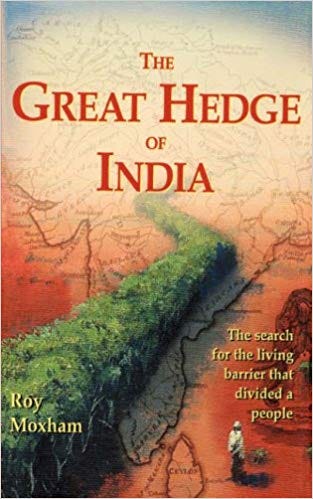Fence built in colonial India to block salt trade
Roy Moxham writes about a great hedge set up in Bengal by the British East India Co to deter salt smugglers
February 15, 2019
The hedge was created by the British East India Co. to prevent smugglers from crossing into Bengal, writes Roy Moxham in his book The Great Hedge of India. “The contraband in question wasn’t opium or hashish or arms. It was salt, a basic requirement for a healthful diet,” notes Adrian Higgins reviewing the book in The Washington Post.
The East India Co. and, later, the British state, imposed a hefty tax on salt and thus needed to control its supply and movement, indifferent to the suffering this caused among’s India’s poor. Long after the hedge had gone, the salt tax remained. Mahatma Gandhi famously led a protest against it, saying its abolition was “for me one step, the first step, towards full freedom.”
An unquestionably fascinating tale, as well as a travel book and historical detective story, The Great Hedge of India begins in a secondhand bookshop on London's Charing Cross Road. There Roy Moxham buys the memoir of a nineteenth-century British colonial administrative officer, who makes a passing reference to a giant hedge planted by the British across the Indian subcontinent.
That hedge—which for fifty years had been manned and cared for by 12,000 men and had run a length of 2,500 miles—becomes what Moxham calls his "ridiculous obsession."
Recounting a journey that takes him to exotic isolated villages deep in the interior of India, Moxham chronicles his efforts to confirm the existence of the extraordinary, impenetrable green wall that had virtually disappeared from two nations' memories.
Not only does he discover the shameful role the hedge played in the exploitative Raj and the famines of the late ninteenth century, but he also uncovers what remains of this British grand folly and restores to history what must be counted one of the world's wonders—and a monument to one of the great injustices of Victorian imperialism.
"Grandly entertaining ... close to being a perfect story of a fanciful quest," wrote a reviewer in The Boston Globe
This article is being re-published since Global Indian Times has also begun posting on Substack.
(c) All rights reserved. Copyright under United States Laws.


